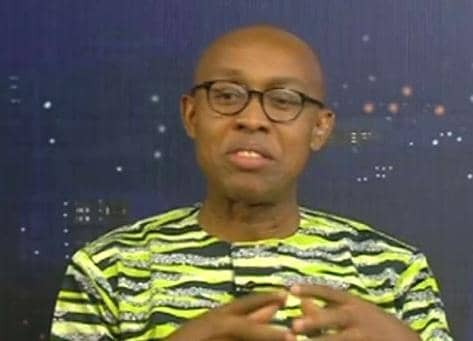When the House of Lords, as the upper chamber of the UK Parliament is called, debated the Courts Bill introduced by the government of Edward Heath in December 1970, Lord Hailsham was in the Woolsack as the Lord Chancellor. His father, the first Viscount Hailsham, had served his first tour of duty in the same position a mere 42 years earlier. As the debate proceeded on the bill, Lord Hailsham reminded the prospective judge to “approach the Bench with the enthusiasm of a bridegroom approaching marriage, or of a priest approaching priesthood.”
In the British system, the relationships entailed between a groom and his spouse or a priest with his Bishop, excluded multiple partners or patrons; but just as alimentary wellbeing has always been celebrated as the key to the heart of a spouse, politicians intent on cultivating intimate relations with the judiciary disregard judicial independence and invest financially in the appurtenances of judicial wellbeing.
In 1992 Matthew Ngulube became the Chief Justice of Zambia, the first to be appointed since the country transitioned from one-party rule. The president was Frederick Chiluba. Ngulube arrived at the Chambers of the Chief Justice with credentials that looked impeccable. One and a half decades earlier, he had served as President of the Law Association of Zambia (LAZ), the country’s Bar Association.
Ngulube served as Chief Justice for one decade, presiding over some momentous decisions and transitions in Zambia’s judicial and constitutional history. During this period, he became well known around the Commonwealth as a spokesman for judicial integrity. Outside public view, his record stank.
On 28th June 2002, President Levy Mwanawasa, successor to President Chiluba and, himself also a former president of the LAZ, accepted the resignation of Chief Justice Ngulube. The facts that emerged were shocking.
As Chief Justice, Ngulube was in fact, in the payroll of President Chiluba and “received thousands of dollars from a special account managed by Xavier Chungu, former intelligence chief and ex-president Frederick Chiluba’s top security adviser”, amounting to over US$168,000. This was a lot of money in a poor country at the time and indeed more than the “equivalent to the Zambian government’s annual funding to a single government department.” From the proceeds of this financial intimacy, Chief Justice Ngulube separately built “a nearly-completed mansion on the eastern fringes of Lusaka, whose cost is estimated at about 700 million kwacha (about US 149,000 dollars).”
These payments enabled the government of President Chiluba to buy favourable decisions from the court of Chief Justice Ngulube. The investigations reportedly revealed that the government used him “to subvert the course of justice in all cases involving Chiluba and his aides during the past ten years of his administration.
52 years earlier, in the debate on the High Court and County Judges Bill in the United Kingdom House of Commons in May 1950, Mr. Marlowe, a member of parliament, explained that it was impossible “for a High Court judge to discharge his functions properly if he knows that during the day, he will sit on the Bench with a prisoner in the dock before him and later in the evening may be sitting side by side with the prisoner in the bus.”
When they are not concerned about gifting houses to judges, politicians in Nigeria, for instance, seem overly concerned with the cars that the judges drive. On the last day of July 2025, Adamawa State Governor, Umaru Fintiri, gave away 23 sub-urban utility vehicles (SUVs) to judges in the state as an expression of his “unwavering commitment to strengthening the justice system.”
Governor Fintiri was the latest governor to advance this practice of conducting executive intimacy with judges on four wheels. In this he was merely following in the footsteps of his peer in neighbouring Borno State, Babagana Zulum, who had “donated” 19 cars to judges and Khadis in the state in January 2025 “to enhance the judicial sector and ensure that our citizens have access to justice as we continue to recover from 16 years of insurgency.”
In one month between July and August 2024, Kogi State’s Governor Ahmed Ododo donated 25 SUVs in two instalments of 14 and 11 respectively to the Chief Judge, Josiah Majebi, for use by judges in the state “with assurance to supply more soon so that it can go round all the Judges and magistrates operating in the state.” A mere eight months earlier, in December 2023, Governor Ododo’s benefactor and predecessor, Yahaya Bello, on the eve of his departure from office as Governor, had donated 40 SUVs to be shared equally between judges and legislators in the state.
When Catholic priest-turned-governor, Hyacinth Alia, gifted six new SUVs to judges in Benue State in May 2024, he claimed that he did it to enhance “judicial service delivery.”
Eight months earlier, in September 2023 his counterpart in Abia State, Alex Otti, handed over five SUVs to judges of the State High Court because they were reportedly in their fourth year of service in the role without official cars.
In July 2023, Anambra State Chief Judge, Onochie Anyachebelu, received 11 SUVs from the state government, “the first batch of official vehicles the Governor, His Excellency, Prof. Chukwuma Charles Soludo pledged to allocate to the Judicial Officers.” The Chief Judge thanked the governor “for being timely in commencing the fulfilment of his promise to the Judiciary to that effect, noting that the Judiciary expectations on him for the remaining vehicles are high.”
In August 2022, Ogun State governor, Dapo Abiodun, presented 13 SUVs to judges in the state “to enhance their welfare.”
In September 2020, Lagos State Governor, Babajide Sanwo-Olu, handed over 51 SUVs and eight houses to judges in the state “as part of his vision to build a strong judiciary.”
Governor Sanwo-Olu bettered his counterpart in Rivers State, Nyesom Wike, who the previous month, in August 2020, gave 41 SUVs to judges in the state.
Three months earlier, in May 2020, Governor Hope Uzodinma handed 20 SUVs to judges in neighbouring Imo State to “motivate” them. He added 10 more in July 2024.
In February 2020 then Governor of Kaduna State, Nasir El-Rufai, gifted 24 SUVs to judges in the State.
In five years since 2020, advocacy group, Citizen Gavel, reckons that eight governors gifted at least 237 SUVs to judges in their respective states. This is a gross undercount.
The Nigerian Bar Association has complained that the practice of gifting cars to judges demeans the judiciary, impoverishes judicial office, and hollows out judicial independence.
In 2014, the Federal High Court ordered government at all levels to pay funds for the needs of the judiciary to the National Judicial Council (NJC). Compliance with this would have ended the undisguised importuning of judges with alimentary blandishments from the executive.
Instead, the Federal Government has turned that into an art form and appears to have designated a Minister for the Welfare of Judges in all but name. This past week, former Governor Nyesom Wike, now Minister of the Federal Capital Territory (Abuja), “boasted that about 80 per cent of the accommodation problem bedeviling judges would have been solved before the end of the first tenure of President Bola Tinubu.”
The calibration of this pretence of executive magnanimity with the electoral cycle was an essential part of the announcement. Buying judges has become a central tool in the arsenal of political ascendancy in Nigeria. No one pretends to conceal the appearance of quid pro quo.
At the Annual Conference of the Nigerian Bar Association (NBA) in Enugu at the end of last month, a judge from one of the neighbouring south-eastern states was heard openly fulsomely confessing the support of himself and his judicial colleagues for the present administration. He cited the increase in judicial salaries by over 300% and the increase in age of retirement of High Court judges and warned whoever cared to listen that any political competitors will not receive the support of judges in 2027. How many votes do judges have?
102 years ago, the High Court in England cautioned that it is essential that nothing is “done that creates even a suspicion that there has been an improper interference with the course of justice.” The role of the “Ministry of Judges’ Welfare” is to ensure precisely that the opposite is the new normal, going by the assertion of the judge, who spoke at the Enugu NBA Conference.
A lawyer and a teacher, Odinkalu can be reached at chidi.odinkalu@tufts.edu
![]()








